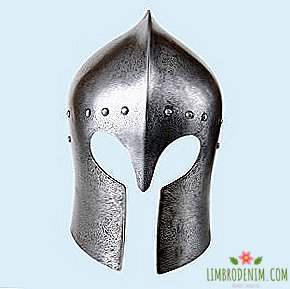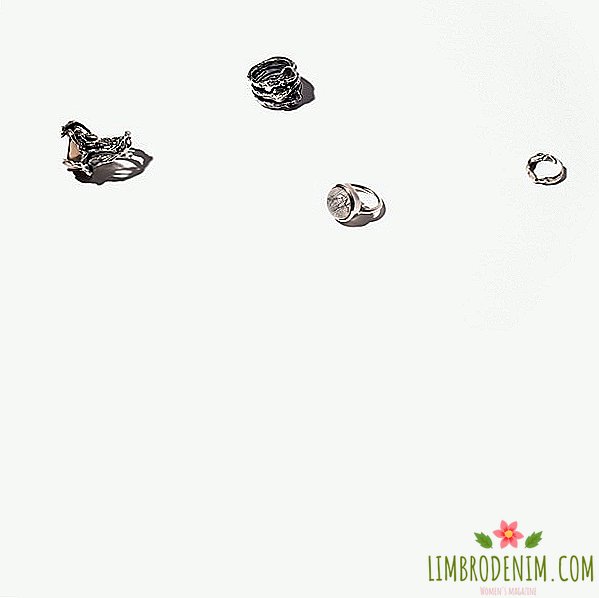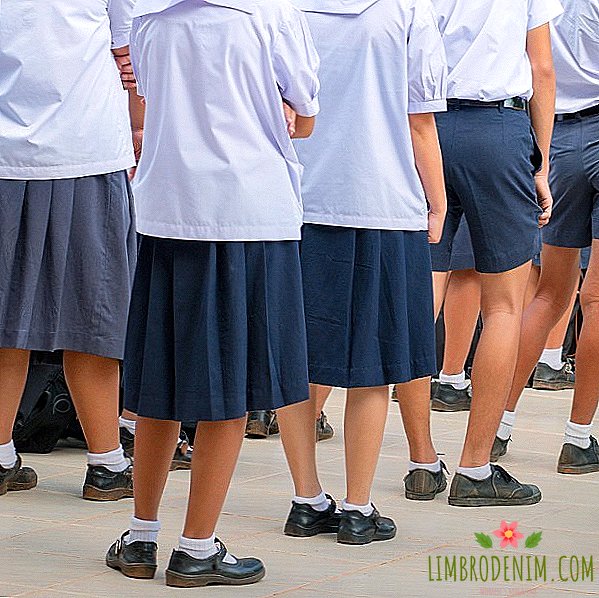"They do not take offense at their relatives": How family myths ruin our lives
Family myth is a concept from systemic family therapy. Examples of myths were described by the “Milan group” of psychotherapists - Palazzoli, Boscolo, Chekkin and Prata - and the Russian psychotherapist Anna Varga in her work on systemic family therapy. Myth is the banner, the motto under which the family stands. This is a very general and categorical answer to the question of who we are and how we live. Myths are not in every family, and they do not appear for a reason.
The family myth should unite the family and arise in periods of tremendous stress and social upheaval when the family is threatened with disintegration due to external circumstances: a change of political regime, wars, repression, during emigration. At the same time, despite the fact that the myth is born then, it persists for many generations. It is believed that the family myth is always dysfunctional, because it dictates harsh and unchanging standards of life, which in quiet conditions usually interfere, and not help a person. Family myths are a powerful thing, they can be difficult to understand, let alone get out from under their influence: this is a long job that is best done with a psychotherapist. We describe how the most common myths may look and how they affect people's lives.

"One for all, and all for one", or "Well, just an ideal family"
The myth of the ideal family is the myth of friendship, universal love, kindness, and respect. Of course, in a good and functional family, all these feelings are already present. But living people can not experience only one inexhaustible love and joy of communicating with each other: in any family there are quarrels, quarrels, irritation and even anger.
The myth of a perfectly close-knit family excludes these feelings; family members do not consider them. This, of course, does not mean that they are not. Here lies the trap: a person brought up in the family myth of friendship is sure that he cannot and does not have the right to be angry with other family members or notice that they behave towards him is somehow unpleasant, not the way he would like. People from such families can describe their parents as ideal, a perfect couple, and their family as a very close-knit and friendly one. Any attitude and any actions will be treated as expressions of love and care.
“Care” may look quite strange from the outside. For example, mother insisted on breaking up a maturing son with a girl. The family believes that in fact she was right, because that girl didn’t fit her son at all, it’s just that he didn’t notice it before. Mom allegedly opened his eyes - and she needs to say thanks for that. Or the elder sister allegedly is very friendly to the younger: "kindly" indicates the shortcomings of her appearance, warns that the husband can bring someone to himself if she does not lose weight and does not start to take care of herself.
Often, adolescents from “ideal” families remain tightly connected with the family, and until the end of their lives, they are devoted first of all to their parents, and the partner and their own children are placed in second place.
The famous "Milan group" - the founders of systemic family therapy - described an example from their practice, when the family of Italian farmers who moved to the city turned out to be the bearer of the myth. The family kept the “communal” rural lifestyle: several brothers with their wives and children lived in a big house. A fourteen-year-old girl from this family, the daughter of one of the brothers, became ill with anorexia nervosa and practically melted before her eyes. Parents did not understand where such trouble was in their beautiful and friendly family.
It gradually turned out that the girl spent a lot of time with her cousin - the parents of both girls were very happy about it, strongly encouraged their joint leisure. But their relationship was in fact not at all friendly: the cousin envied the second girl, considering that she was more beautiful than her, and therefore teased the patient, made fun of her and treated her cruelly. The girl naturally was angry with her sister, but she couldn’t afford such feelings: after all, in a close-knit family, no one should be angry and offended by relatives — all the more so because the parents explained their cousin’s actions with love. Feeling angry and spoiled, violating family rules, the girl “punished” herself with the disease and literally tried to starve herself.
For the bearers of the myth of a close-knit family, there is a huge feeling of guilt for any unfriendly feelings towards relatives, a refusal to help, a desire to live one’s life separate from the family. Therefore, people with psychosomatic illnesses, depressive or anxiety disorders often appear in such families. It is very difficult for teenagers from “ideal” families to go through a period of separation from their parents, since this is completely contrary to myth. Often they remain tightly connected with the family and, to the end of their lives, are devoted first of all to their parents, and they put the partner and their own children in second place.
The myth of how to become a man
Anna Varga in her book calls him "We are the people." It is a myth that people are not born, but become - through education and communion with culture. The bearers of this myth respect intelligence and knowledge, read a lot, consider, for example, that there is a whole set of books, without reading which a person cannot be considered a cultural and in general a "real" person. Children in such families are tenderly called by some animals - "little darlings", "cats" and "fish", and swearing - "pigs", "cattle" and "animals" (although, of course, this is not the only sign of the myth). The myth says that human form can not only be acquired, but also lost if you stop following development and start being lazy: so you will turn into a "seal", "sloth" or even worse - a "boar". The bearers of this myth love to learn and can receive several higher education in a row. With career success, this is in no way connected, while the family may be on the verge of poverty, and additional education may not have any practical value.
The implications of this myth are especially painful for modern families, which have been divided by the digital age. Parents lament that children do not read anything - which means they will never become "people." They are not convinced by the fact that a daughter or a son can have excellent abilities for math, programming, competent speech, as they read and write a lot on the Internet. It is only important that the formal, “correct” familiarization with the culture did not happen, and this is very sad for parents. If a child suddenly finds himself inclined towards some practical activity and wants to go to college, and not to college, this can also become a real drama.

Myth of heroes
This is perhaps one of the most common myths in Russia - it happened because of the peculiarities of the history of our country. It is formed when the family has to exist in unbearable conditions - during war, famine, repression. The myth says that family members are heroes, they will endure everything. He really helps to commit acts that go beyond the limits of ordinary, peaceful life: starve to feed the children, live in a dugout and be a partisan in the squadron, go through the war, hide from their pursuers.
In a quiet and full time, the myth becomes dysfunctional, but often many more generations continue to live. The bearers of this myth must create for themselves the conditions for a heroic struggle, overcoming difficulties and trials. In the absence of serious problems, they create them very successfully and just as successfully decide to get involved in some kind of rework.
Heroes have emotions at the limit: friendship forever, and if a quarrel - then until the end of life. Heroes themselves are very demanding of themselves and other people, "whiners" and "comfort lovers" are often despised.
Carriers of this myth can, for example, organize themselves so tight a schedule so as not to get enough sleep in principle, run everywhere and still be late. They are constantly in conditions of physical discomfort: they forget to eat or dress for the weather, because food is not the main thing, and the main thing is business. They simply do not know how to live in calm conditions: they have not been taught this in the family, this is an unfamiliar way of life for them. If suddenly a hero has a period of success and calm, when no difficulties are foreseen, he may dramatically increase anxiety or even become depressed. He does not know how to live in such a situation and feels like a deep-sea fish, which he has been pulled to the surface.
The heroic myth prescribes not only the rules of life, but also the scope of feelings. Heroes have emotions at the limit, at the maximum: friendship is forever, and if a quarrel is to the end of life, mortal offenses, fatal love (and often tormenting). No halftones - calm sympathy, warm affection or light annoyance. Heroes themselves are very demanding of themselves and other people, "whiners" and "comfort lovers" are often despised. And the truth is, when around the eternal battle, they only interfere.
The myth of the rescuer and the saved
This is in a sense a subspecies of the heroic myth, only one person becomes the knight in sparkling armor, who must bail out the rest of the family. This myth is well discerned from the outside: family members constantly talk about one person, that he is their hope, support, they can declare in plain text that she or he literally “saves” the family. Or the rescuer himself can identify himself in this way: in the speeches of such people, as if jokingly, the words “have to be saved” (instead of “need to be helped),“ save everyone ”,“ cure for help ”,“ disappear without me ”and It does not matter what the rescuer does: earns money well and shares it, carries the "rescued" at hospitals and emergency centers, or takes them from police stations (and often combines all these functions) - the main thing is that it is indispensable for your family.
The situation differs from the usual mutual assistance in that in the family of the saved people the functions of the superman are always performed by the same person. And the worst of all, alas, is that the rest of them are forced to act in a certain way for the sake of maintaining the myth - otherwise it will not be necessary to save them, and the identity of the family will be threatened. Therefore, the "rescued" conflict with the authorities and quit their job, which came out two weeks ago, drink alcohol, take drugs, do not cure diseases and perform any other actions that systematically threaten their well-being. The rescuer rescues them, exhausting, but continues to fulfill its role. Their relationship with a partner is also based on the principle of salvation. Codependency is a well-known model of relationships, and they are used to showing love in this way.
Photo:barkstudio - stock.adobe.com, Valery Sibrikov - stock.adobe.com





